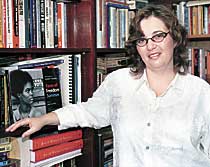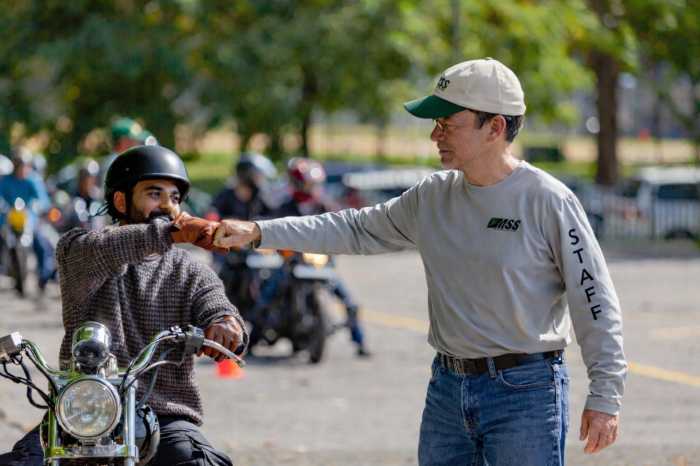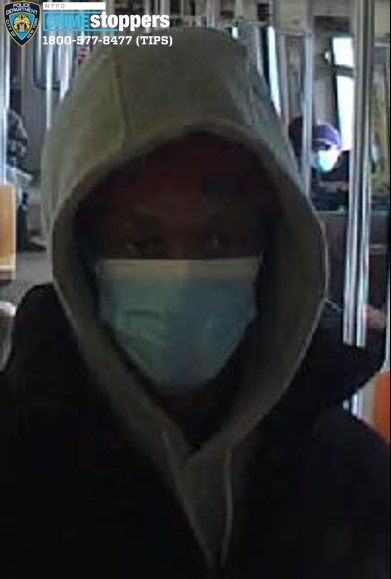On a hot May night in 1951, a 30-year-old woman, attorney
Bella Abzug, returned to Jackson, Miss., to appeal the conviction
of her client, Willie McGee, a black man wrongly accused of raping
a white woman. Although Abzug had booked a room in advance, the
hotel refused to honor the reservation and no other room could
be found. So Abzug, who was pregnant at the time, spent the night
in the bus station, and the next day argued McGee’s case in front
of justices for six hours.
The court upheld the original decision. McGee was executed on
May 7, 1951 before a crowd of 700 cheering whites, and Abzug
subsequently had a miscarriage. None of this in any way dampened
Abzug’s lifelong quest for social justice.
Although Debra L. Schultz begins her book "Going South:
Jewish Women in the Civil Rights Movement" (New York University
Press, $26) with this account, none of the 15 women she interviewed
achieved the renown of Abzug. But, writes Schultz, although they
were "not so prominent, not so fearless, not so vocal [they]
nevertheless took the same risks and fought for the same ideals."
"Going South" is an oral history, reflecting the experiences
of 15 women who joined the 1960s civil rights movement, working
primarily with the Student Nonviolent Coordinating Committee
(SNCC), a progressive, action-oriented civil rights group led
by young black organizers.
Schultz, a self-proclaimed "total fanatic about Brooklyn,"
was raised in Midwood and has lived in Park Slope for the past
eight years. Growing up Jewish in what she calls "one of
the most diverse, interesting places you could possibly live"
was certainly a primary influence in Schultz’s future endeavors.
Schultz is not only an author, but also deputy director of the
Network Women’s Program of George Soros’ Open Society Institute,
a place where "we support the development of more democratic,
more open societies in parts of the world that have previously
been closed to these ideas," she told GO Brooklyn.
In 1977, Schultz was 16 and a student at John Dewey High School
in Gravesend when she first began studying women’s history. She
continued studying the subject at New York University where she
earned her undergraduate degree, the City University of New York
Graduate Center where she received her master’s and the Union
Institute in Cincinnati, where she earned her Ph.D. and wrote
the dissertation that was to become this book.
Schultz began her serious studies during the ’80s when, she says,
there was a "tremendous discussion" in women’s studies
about multiculturalism and the question of whether feminist scholars
had "paid enough attention to the views and experiences
of women of color."
Schultz said she was particularly influenced by black feminist,
poet and writer Audre Lorde, who had "raised a lot of challenging
questions."
At the same time, Schultz realized that her own Jewish identity
needed exploration.
"We were talking about identity politics and how different
people organize and express their backgrounds and their viewpoints
in politics," she said. "I realized that I was studying
a lot of history of African-American and other groups of women
without really exploring what it meant to me that I was a Jewish
woman. Racial identity was interesting for me because of the
Holocaust, when Jews were killed because of what was perceived
as their race."
Another motivating factor was the 1991 riots in Crown Heights,
a neighborhood not far from where Schultz makes her home.
"Going South" became the "perfect topic"
because it combined a 20th-century, American, social change movement,
women fighting racism and progressive Jewish identity.
In 1994, when Schultz began her research, she knew one or two
women from feminist academic circles who had been involved in
the 1960s civil rights movement, and they all said, "You
have to speak to Dottie Zellner."
Dorothy Miller, who later married Bob Zellner, the first white
SNCC staff member, went south with the emerging movement in 1960
and was a key person in SNCC, who could suggest other SNCC veterans
to interview. Another helpful resource was Barbara Emerson, a
dean at The New School and the daughter of Martin Luther King
Jr. colleague Hosea Williams.
When Schultz first began her research, she was surprised by the
lack of visibility of Jewish women in the movement. She says
her "aha!" moment came while reading about Mickey Schwerner
and Andrew Goodman, two Jewish civil rights workers who along
with their black colleague, James Chaney, were murdered in Mississippi
during the summer of 1964.
Schultz realized that few people remember that while Andrew Goodman
had been in Mississippi for one day when he was killed, Rita
Schwerner, Mickey’s wife, had been in Mississippi for six months.
"It struck me as the perfect embodiment of how women’s activism
gets lost in history," says Schultz. She gives two reasons
for the invisibility of Jewish women: one, they didn’t identify
as Jewish women within the movement and two, there was greater
media hype around the achievements of men.
One of the principal themes in Schultz’s book is the question,
"Why did they go?" Schultz believes these 15 women
joined the civil rights movement because they grew up with the
Jewish sense of social justice, and the movement allowed them
to do something meaningful, without completely stepping out of
the traditional roles allotted to Jewish women.
"The culture tolerated strong women, but at the same time
also felt that the proper role for women was to be a wife and
mother," Schultz explains.
Indeed many of these women did marry and become deeply involved
with their own families. However, the majority of them continue
to be involved in social change activities – working in the labor
movement, in prisons and in abortion clinics.
A lesser, but equally intriguing question, is what caused the
disintegration at the end of the decade of the black-Jewish and
black-white alliances that were formed during the civil rights
movement? Schultz says that although there is not enough information
available on what caused the breakup, it is widely believed that
FBI infiltration and provocation played a large role.
Among the 15 women Schultz interviewed, there is a wide range
of feeling about what happened, but Schultz says she feels closest
to those women who say the disintegration of the alliance was
"historically necessary" for SNCC.
"Whites sometimes had difficulty holding back so local blacks
could develop leadership skills," Schultz explains. This
was especially problematic considering that whites could and
did return to their homes in the north.
Still, Schultz believes that blacks and Jews can be allies, and
these women who were "willing to put their bodies on the
line to help another group achieve justice in this country"
can serve as wonderful role models.
"They’re ordinary women," she says. "So if they
could do it, anyone can do it."
"Going South: Jewish Women in the Civil Rights Movement"
(New York University Press, $26.95) by Debra L. Schultz can be
ordered at A Novel Idea Book Store [8415 Third Ave. (718) 833-5115]
in Bay Ridge, Community Bookstore [143 Seventh Ave. between Carroll
and Garfield streets, (718) 783-3075] in Park Slope and BookCourt
[163 Court St., (718) 875-3677] in Cobble Hill.

























